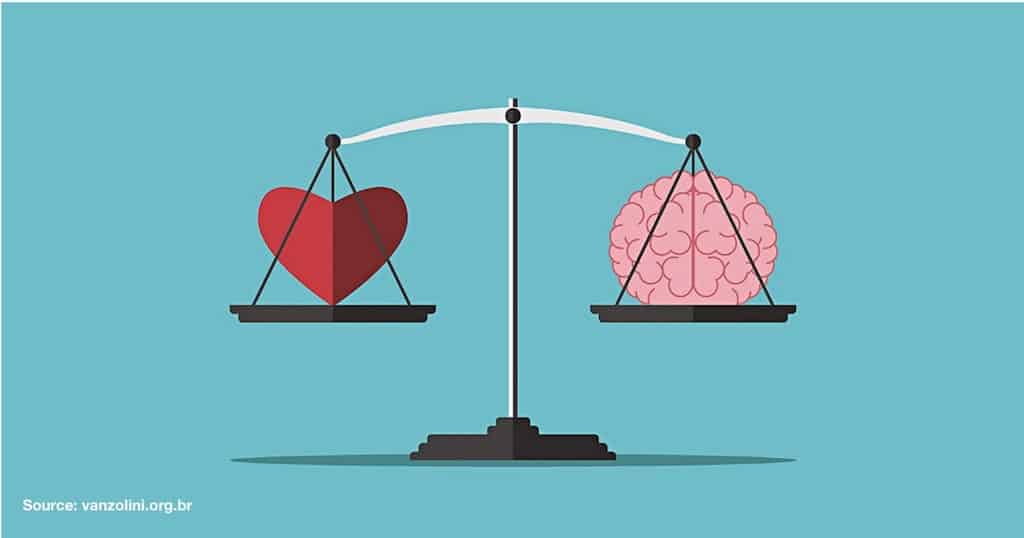Wise Mind is a core concept taught in Dialectical Behavior Therapy (DBT). This skill helps us develop and bridge the gap between the Emotion and Reason Mind. Wise Mind balances thinking and feeling, reinforcing beliefs that we are more effective when we both think and feel our experiences.
The Emotion Mind: Emotions control our thoughts and behaviors. We react based on feelings and psychological needs. Our thoughts are often distorted, lacking rationality and logic.
The Reason Mind: Thinking is logical, rational, and intellectual. Actions and decisions are focused based on facts and past experiences.
Wise Mind bridges the gap between the rational and emotional minds. A wise mind uses both intuitive thinking and mindfulness to make decisions that honor both our logical and emotional natures. It validates our emotional experience AND unites our ability to use reason.
To get to Wise Mind, there are What Skills and How Skills.
What Skills are what we do to get to Wise Mind:
- Observe: Notice your experience without clinging to anything fully. Use the five senses to observe and gather information. Collect data about your experience by noticing what you see, hear, taste, feel and smell.
- Describe: Begin to outline the details of your observations with descriptions. Bring words to what you are experiencing without analyzing what you are experiencing. You can do this with yourself or with others but remember that you are NOT your thoughts, feelings, sensations and impulses. You are putting words to what you are observing.
- Participate: Be in your experience. Use the observations and descriptions to make choices with your experience. Make a choice: stay with and relate to your experience or redirect to simply observing and describing.
How Skills are how we apply the What Skills to get to Wise Mind:
- Nonjudgmentally: Stick to the facts and refrain from adding/labeling your opinions. Try to simply name the who, what, where, when, and how of an experience instead of labeling facts as “good” or “bad”. These are relative terms that take us out of a mindful state.
- One-mindfully: Focus on one thing with your full attention. Distractions are natural and will come and go but practice stepping back into one mind and observing one thing at a time. Try not to trade the present moment for a judgmental mind.
- Effectively: Do what works best for the situation, not based on your preferences. Try not to exert unneeded energy or act on short-lived judgments. Come back to your goals, priorities, and values to skillfully as possible respond to a decision.
Practicing Wise Mind allows you to become responsive to experiences rather than reactive to your experiences. Slowing down through moments of observation, description, and mindfulness grounds and connects us to the Wise Mind that uses both parts of us to make decisions, respond, and honor ourselves.
Written by: Chardyce Kott, LSW

